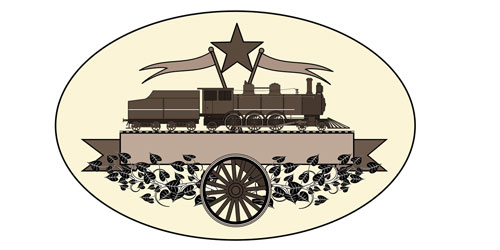《论语诠解英文版》——Chapter XIX "千张" (Zizhang)
[19- 1] 子张曰: “士见危致命,见得思义,祭思敬,丧思哀,其可巳矣。"
19.1 Zizhang said, "When the country is in crisis, Shi is ready to defend it with his life. When he sees opportunities for personal gain, Shi first thinks of righteousness. When he is serving a sacrificial ritual, his attitude is deferen tial. When he is mourning, his feelings are grievous. Indeed, such a man is fit to be called Junzi."
[Reading] In a narrow sense, " 士 Shi" is at the lowest level of the Zhou no bility of ancient China. In a more general sense, " 士 Shi" refers to well-edu cated scholars who had a certain social status during the Spring and Autumn Period. In the Analects, Confucius defined " 士 Shi" as one who has high aspirations, pursues "1 二 Ren" both on a personal and social level, proactively acts out the righteous, has a strong sense of honor, never indulges in comforts and pleasures, and is ready to sacrifice for a lofty cause. According to Confucius, "士Shi""sets his mind on truth." (Section 9, Chapter IV) "士Shi" "should be broad-minded and unflinching, since his responsibilities are challenging and his cause is long. Is it not a demanding task to take as one's responsibility the realization of true virtue, which only death can stop? Is it not a long cause?" (Section 7, Chapter VIII) Confucius further remarked, "Those who have a sense of shame while conducting themselves and those who are able to successfully fulfill the mission charged by his prince when dispatched to any quarters could be called " 士 Shi." (Section 20, Chapter XIII)
[19- 2] 子张曰: “执德不弘,信道不笃,焉能为有?焉能为无?”
19.2 Zizhang said, "Holding firm to the virtuous, yet being unable to mag nify and glorify it; having faith in the righteous, yet being unable to stand fast by it: Does it matter if such a person exists in the world or not?"
[Reading] Zizhang believed that a superior man not only should have faith in the virtuous and the righteous, but more importantly, should perform these in his everyday life with sincerity and fortitude and should match his words with his actions.
[19- 3] 子夏之门人问交千子张。子张 曰: “子夏云何?”对曰: “子夏曰: `可者与之,其不可者拒之。'“子张曰: “异乎吾所闻。君子尊贤而容众,嘉善而矜不能。我之大贤与,千人何所不容?我之不贤与,人将拒我,如之何其拒人也?”
19.3 A disciple of Zixia asked Zizhang what principle to observe when as sociating with people. Zizhang asked, "What did Zixia say about it?" He replied, "Zixia said,'Associate with those with whom you feel comfort able but stay away from those you find unfit.'"Zizhang said, "What I have learned is different from this. The superior man respects virtuous people but also tolerates common folks. While he commends the talented, he is also sympathetic with the less capable. If I am truly a virtuous man, I can em brace anyone. But if I am not a virtuous man, others would reject me. How come I could reject others?"
[Comment] "与 yu" means "to associate with, to make friends with." " 拒ju" was traditionally used interchangeably with " 距 ju" (an archaic form), connoting "to reject, to refuse." " 嘉 jia" translates as "to praise, to com mend." " 矜 jTn" denotes "to pity, to sympathize with."
[Reading] Zizhang's name was " 颖 孙 师 Zhuansun Shi," and Zizhang was his courtesy name. Zixia's name was " 卜 商 Bu Shang." Zixia was his cour tesy name. Both Zizhang and Zixia were major disciples of Confucius, and both were traditionally venerated among the twelve most renowned Confu- cian philosophers ( 孔门十二哲 k6 ng m的 s h f e r zh 旬 After Confucius died in 479 BC, eight of his disciples, including Zizhang, established their own schools to disseminate the Master's thoughts and ideas, which were known as "f需家八派 ru jia ba poi" (the Eight Schools of Confucianism). According to Han Fei, a renowned sociopolitical philosopher of the"Legalist" school during the Warring States Period (475-221 BC), Zizhang's school of Confucianism was ranked the first of the eight, which indicates the influence he had exerted in the post-Confucius period.
It is interesting to see how Confucius commented on these two accom plished disciples of his. When Zigong, another major disciple of Confucius, asked him, "Which of the two is most worthy: Zhuansun Shi (Zizhang) or Bu Shang (Zixia)?" The Master said, "While Shi goes beyond the norm, Shang does not come up to it." "So Shi is the superior?" asked Zigong. The Master replied, "Going beyond is as undesirable as coming up short." (Sec tion 16, Chapter XI) A diligent and dedicated student, Zizhang, during his years of studying with Confucius, had made substantial accomplishments. He was so serious and sincere about the Master's teaching that he would write his words on his sash. (Section 6, Chapter XV) Many of the important questions Zizhang asked the Master—such as how to be successful, how to conduct government properly, what constitutes insight, what the qualities of a good man are, and what "士 Shi" should do to be called "eminent"—were recorded in the Analects. Interestingly enough, Confucius did not seem to be impressed by him. One of the reasons may be that he thought Zizhang was too casual in social asso ciations, and when he was making friends, he did not discriminate between elites and commoners. Confucius urged that one should keep "a distance from those who are beneath his moral position." (Section 8, Chapter I) He believed that Zixia understood the importance of associating with those who are his moral superiors and he would thus progress well after his master died.( 商也好与贤己者处 s ha ng ye hao yu xi6n jT zh 色 c hu. ) ["(《孔子家语》Kongzi jiayu)"] Family Sayings of Confucius] Zizhang, however, thought differently. According to him, "The superior man respects virtuous people but also tolerates common folks. While he commends the talented, he is also sympathetic with the less capable. If I am truly a virtuous man, I can embrace anyone." He was thus in favor of caring for all people, regardless of their status and ability. This is somehow reminiscent of Moism, which advocated loving all people indiscriminately. (Moism was one of the four popular philosophical schools in Confucius'time. The other three were Con fucianism, Taoism, and Legalism.) Because of this, Confucius believed that Zizhang " 师也过 s h飞 g uo " (Shi goes beyond the norm) and regarded him as " 师也辟 s hT ye pl" (Zizhang is biased). (Section 18, Chapter XI)
[19- 4] 子夏曰; “虽小道,必有可观者焉;致远恐泥,是以君子不为也。"
19.4 Zixia said, "There is something to be said about even trivial skills. However, to use them to realize grand objectives in the long run does not work because they may prove to be a hindrance rather than an asset. The noble man of true virtue, therefore, does not exercise them."
[Comment] "小道 x伯o dao" means "trivial skills, unimportant skills." The Dingzhou version of the Analects (unearthed in 1973) has "至 zhl" instead of" 致 zhl" as used in the current version." 致远 zhl y的 n" translates as"from a long-term point of view." "泥 nl" means "barrier, hindrance."411
[Reading] As mentioned previously, Zixia was one of the favorite disciples of Confucius. As a matter of fact, Confucius preferred him to Zizhang be cause, among other considerations, he shared the Master's thinking that in social interactions, one should "associate with those you feel comfortable with, but stay away from those you find unfit." He believed that Zixia under stood the importance of associating with those who are his moral superiors.(商也好与贤己者处 s ha ng ye hao yu xi6n jT zhe chu.) Here, "小道 xia o dao" (trivial skills) may be used by Zixia as a metaphor to refer to corr 皿 on folks who, while having something to contribute, would in the long run turn out to be a kind of "stumbling block" for " 君 子 Junzi," preventing them from advancing their moral disposition.
[19- 5] 子夏曰: " B 知其所亡, 月无忘其所能, 可谓好学也已矣。"
19.5 Zixia said, "Those who, on a daily basis, are eager to learn what they do not know and who constantly review what they have learned before can be called true learners."
[Com ment] "亡 wu" is here used interchangeably with " 无 wu ," meaning "to have nothing."
[Reading] What Zixia said in this section echoes Confucius'well-quoted saying: " 学而时习之,不亦 说 乎 ? xue er shf xf zhT, bu yl yue hu?" (Isn't it a pleasure to learn something and then review it?)
[19- 6] 子夏曰; “博学而笃志,切问而近思,仁在其中矣。"
19.6 Zixia said, "He, who learns extensively, holds firm to his aspirations, consults others when he has doubts, and then seriously reflects on his learn ing to see if it is applicable, has indeed obtained Ren."
[Comment] "笃志du zhl" means "to have high aspirations." "切问 q ie wen" connotes "to seriously ask oneself if he has fully understood what he has learned." "近思 jln sf'translates as "to examine questions against the real situation."
[Reading] Instead of turning " 仁 Ren" into an abstract concept, Zixia has rendered " 仁 Ren" a real thing, one that every one of us experiences on a daily basis: What to learn? How to learn? And how to practice it? In this sense, Zixia advanced his Master's teaching and enabled people to relate to and identify with the virtue that is "1 二 Ren."
[19- 7] 子夏曰: “百工居肆以成其事,君子学以致其道。"
19.7 Zixia said, "Artisans tended their work in the shops with assiduous attention in hopes of accomplishing their tasks. Likewise, the superior men focused on their learning in order to reach a high level of supreme truth."
[Comment] "百工bai gong" translates as "artisans of various kinds." '肆sl" refers to a workplace for artisans in ancient China. "致zhl" means "to reach, to arrive at."
[Reading] In this passage, Zixia pointed to the sample principle, that is, peo ple, be they artisans or "君子 Junz i", need to tend to their work with enthu siasm, attention, and dedication in order to be successful in their profession, that is, to become part of the Way.
[19- 8] 子夏曰: “小人之过也必文。"
19.8 Zixia said, "The mean man always tries to excuse himself for the mis takes he has made."
[Com ment] " 文 w的 " means "to excuse, to cover, to hide."
[19- 9] 子夏曰:“君 子有三变: 望之俨然,即 之也温,听 其言也厉。”
19.9 Zixia said, "The noble man presents himself in different ways. Viewed from a distance, he appears grave and solemn. When approached, he is kind and amicable. Listening to him, one feels he is determined and strict."
[Reading] It is interesting to note that while Confucius focused more on what constitutes a "君子 Junzi," in this passage Zixia seemed to be more interested in how a "君子 Junzi" should present himself.
[19- 10] 子夏曰: “君子信而后劳其民;未信,则以为厉己也。信而后谏;未信,则以为谤己也。"
19.10 Zixia said, "Only when a Junzi has won the people's confidence could he make them work for him. Otherwise, they would regard him as a cruel exploiter. Likewise, a Junzi must first have the trust of his prince before he could remonstrate with him. Otherwise, the prince would assume he is de faming him."
[Comment] " 历 11" means "to torture."
[Reading] " 信 xln" (trust, confidence) remains one of the most important qualities a " 君 子 Junzi" should possess, both for himself and for people he would associate or interact with in society. There are more than a dozen occasions in the Analects where Confucius emphasized the importance of truthfulness and confidence. For instance, in Chapter 1, Zeng Zi was quoted as saying, "I daily examine myself to see: whether I may not have been faithful and dutiful enough when I do things for others; whether I may not have been truthful enough to my words when I interact with my friends; and whether I may not have practiced what my teacher has instructed me to do." (Section 4, Chapter 1) In the same chapter, Confucius also said, "To rule a big country with one thousand chariots, the ruler should be serious, sincere and honest." Only when a "君子Junz i" is truthful and honest will he win the confidence of the people and the trust of his prince.
[19- 11] 子夏曰: “大德不跄闲,小德出入可也。"
19.11 Zixia said, "One should not compromise the fundamental principles of virtue and righteousness, although venial errors are excusable."
[Com ment] "跄yu" is used interchangeably with "逾 yu ," meaning "to trespass." "闲 xi6 n" implies "阑 16 n" ("boundary" or "borderline").
[19- 12] 子游曰: “子夏之门人小子,当洒扫应对进退,则可矣, 抑末也。本之则无,如之何?”子夏闻之,曰: "噫!言游过矣!君子之道,孰先传焉?孰后倦焉?譬诸草木,区以别矣。君子之道,焉可诬也?有始有卒者,其惟圣人乎?”
19.12 Ziyou said, "Zixia's disciples are pretty skillful in cleaning the floor and sweeping the yard, in receiving and greeting visitors, or in taking and re laying messages. However, these are but trivialities, which in no way could prepare them to discourse on the supreme principles of virtue and righteous ness." When Zixia learned this, he said, "Alas, Yan You is indeed mistaken! Which part of the supreme principles of virtue is to be taught first or next is just like distinguishing between flowers and trees. It is all wrong to misinter pret the supreme principles of virtue. To be able to illustrate such fundamen tal principles in a systematic way is something only a sage can accomplish!"
[Com ment] "子游 zT y6u" was the courtesy name of " 言游 y6 n y6u." He was a major disciple of Confucius. "门人小子 m的 伦n xiao zT" refers to "students, disciples." "洒扫 SCI s的 " means "to sprinkle and sweep the ground or the yard." " 应 对 ylng du]" translates as "to receive and greet guests and visitors." "进退 jln tu]" refers to the rituals for serving guests and visitors. "抑 yl" means "but" or "however." "本 b的 " denotes "根本 g的ben" (essentials). In this context, it implies the supreme principles of virtue.
[Reading] Both Zixia and Ziyou were Confucius'favorite students. Like Zizhang, Ziyou was one of the twelve most renowned Confucian philoso phers( 孔门十二哲 Kongmen Shi'er Zhe). This passage records a heated debate between Zizia and Ziyou regarding what and how to teach students. It should not be viewed just as an argument over teaching methodologies. Rather, it reveals some fundamental differences the disciples of Confucius had in the post-Confucius period regarding what constituted the supreme principles of virtue and how to teach them.
[19- 13] 子夏曰: "仕而优则学,学而优则仕。"
19.13 Zixia said, "An official, if he still has leisure after having executed his duties, should engage in learning. A scholar, if he still has leisure after hav ing accomplished his learning, should serve society by taking a govemmen tal job."
[Comment] "f 士 s hl" means "to become an official by taking a governmen tal job."
[Reading] In this passage, Zixia discussed the Confucian understanding of the relationship between scholars and government officials. According to Confucius, learning is not its own purpose. Rather, to learn is to be able to engage in social activities and ultimately to participate in governance in hopes of transforming society in accordance with the supreme principles of virtue and righteousness. As such, he encouraged his disciples to become scholar-officials (also known as scholar-bureaucrats) in order to yield social impact. This idea started the long tradition of the Chinese hierarchy, which has Confucian scholar-officials at the top, a tradition further cemented by the civil service examination that started in 605 and lasted until 1905-over one and a half millennia.
[19- 14] 子游曰: "丧致乎哀而止。"
19.14 Ziyou said, "In mourning, one should put under control his unre strained grief."
[19- 15] 子游曰: “吾友张也为难能也,然而未仁。"
19.15 Ziyou said, "Indeed my friend Zhang [Zizhang] is remarkably accom plished. Yet he has still not yet attained to a supreme level of virtue."
[Reading] Both Ziyou and Zizhang are traditionally venerated as being among the twelve most renowned Confucian philosophers (孔门十二哲Kongmen Shi'er Zhe). They were both very well versed in Confucian clas sics and accomplished all the learning the Master wished them to do. After Confucius died, they each practiced and disseminated the Master's thoughts and ideas in their own ways. Virtuous though they each were, they nonethe less also suffered the complex of "men of letters belittling each other" and criticized each other, as we see them debate in harsh terms in this chapter and elsewhere throughout the Analects.
[19- 16] 曾子曰: "堂堂乎张也,难与并为仁矣。"
19.16 Zeng Zi said, "Zizhang is indeed stately and magnificent! Yet, it is inconceivable for people to perform and obtain virtue with him."
[Comment] "堂堂 ta ng tang" means "strikingly impressive in appearance and manner." "并 blng" connotes "和 he" ("and" or "together with").
[Reading] Like Zixia, Zeng Zi did not seem to like Zizhang. He appeared to have mixed feelings about him when he stated that Zizhang's imposing ap pearance and manner did not seem to match his character and that Zizhang seemed to lack an inner strength that would enable him to practice virtue with others. In other words, it would be impossible for others to benefit from practicing virtue with him because, according to Zeng Zi, there was a lack of virtue in him.
[19- 17] 曾子曰: “吾闻诸夫子:人未有自致者也,必也亲丧乎!”
19.17 Zeng Zi said, "I have heard from our Master that'men will not ex press their feelings to the fullest except when they mourn for their parents.'"
[Comment] "诸 zh O" means "from." "自致 z1 zh1" translates as "to reach a highest level automatically."
[19- 18] 曾子曰: “吾闻诸夫子:孟庄子之孝也,其他可能也;其不改父之臣与父之政,是难能也。"
19.18 Zeng Zi said, "I have heard from our Master that'while it may not be too demanding for others to emulate the filial piety of Meng Zhuangzi, that he held firm to his father's way of running the government by retaining his ministers, is indeed something no one else was able to attain .'"
[Comment] The name of " 孟庄子 m的 g zhuang zT" was "仲孙速 zho ng sCi n su." He served Duke Xiang of Lu as his minister and was well-known for his filial piety.
[Reading] This passage discusses filial piety as a key concept at the core of Confucian value. Filial piety means respect for one's parents, and, for that matter, respect for all seniors, including one's elder brothers. According to Confucius, virtue and benevolence all start with filial piety. The question to ask is why Zeng Zi thought Meng Zhuangzi was hard to emulate when he held firm to his father's mode of governance. Zeng Zi's question has two implications. While filial piety primarily relates to one's filial relations with his parents at home, a private space of familial intimacy, it extends, in the case of Chinese culture, to one's "filial relations" with the Son of Heaven (emperor) in terms of loyalty and honor. This is filial piety on a higher level, one of social significance. That is why Zeng Zi believed that it is very dif ficult for others to emulate Meng Zhuangzi's practice of filial piety.
[19- 19] 孟氏使阳肤为士师 ,问 千曾子。曾子曰 : “上失其道,民散久矣。如得其情,则哀矜而勿喜。"
19.19 The aristocratic family of Meng appointed Yang Fu as a chief judge of criminal affairs. When Yang Fu came to consult Zeng Zi, he advised him by saying, "Those in high power have long been deviating from the Way of virtue and righteousness. Consequently, the people have lost their trust and confidence in the government. In executing your duties, when you figure out why offenders committed crimes, you should try to understand them rather than feel proud of your own ability."
[Comment] "阳肤 ya ng fO" was a disciple of Zeng Zi. "士师 s hl shT" means "a chief judge of criminal affairs." "民散 mf n son" connotes "people hav- ing lost their trust and confidence." " 哀 矜 a i jTn" means "to be sympathetic with, to sympathize with." "喜 xT " translates as "to feel joy at oneself."
[Reading] This passage is interesting in that it mentions "阳肤 Yang Fu", a disciple of Zeng Zi who himself was one of the leading disciples of Con fucius. For a disciple of a disciple to be mentioned in the Analects is indeed rare. Since Zeng Zi (literarily: Master Zeng) was arguably one of the authors of the Analects, it may not be too far-fetched to assume that the conversa tion between Yang Fu and his mentor Zeng Zi was included in this important chapter, dealing with the post-Confucius period, for good reason.
[19- 20] 子贡曰: "纣之不善,不如是之甚也。是以君子恶居下流, 天下之恶皆归焉。"
19.20 Zigong said, "King Zhou actually was not as evil as he was believed to be. Therefore, the noble man of true virtue avoids being lodged in situa tions of low moral elevation. If he allows himself to be relegated to such a 421 level, he will be singled out for blame and all things evil and wicked in the world will be dumped on him."
[Com ment] " 纣 王 zho u w6ng" was the last ruler of the Shang Dynasty. He was traditionally believed to be the cruelest, most debauched, and evil est ruler in imperial Chinese history, so much so that his name " 纣 zho u" has become a synonym for "evil" in Chinese culture. The first character " 恶” pronounces as "wu" to mean "dislike, avert," whereas the second" 恶 " is to be pronounced as " E 今 " to mean "things which are evil, sinful, immoral."
[19- 21] 子贡曰: “君子之过也,如日月之食焉:过也,人皆见之; 更也,人皆仰之。"
19.21 Zigong said, "Like the eclipses of the sun and the moon in the sky, when the noble man displays faults, everyone sees them. But when he cor rects them, people look up to him."
[Com ment] " 日月之食 rl yue zhT shf" means " B 食和月食" (the eclipses of the sun and the moon). "更 ge ng" connotes "to correct, to rectify." " 仰沁ng" translates as "to look up to."
[Reading] This passage discusses the importance of self-discipline for "君子Junzi." Although "to err is human; to forgive, divine" (Alexander Pope), insofar as "君子 Junzi" remains an influential social figure-or a social ce lebrity, to use the modem-day term-he is being watched by all men. It is imperative that he is aware of his own faults and is ready to rectify them whenever these occur. In《中庸》 Zhongyong(Doctrine of the Mean) and
《1Li 己》 Liji (Book of Rites), Zisi, who was the grandson of Confucius and who was traditionally believed to be the author of《中庸》 Zhongyong, has this to say: "知耻近乎勇 zhT chT jln hO y6ng," which translates as, "To be fully aware of one's own faults and to be ready to rectify them can be called honorable."
[19- 22] 卫公孙朝问千子贡曰:" 仲尼焉学?” 子贡曰:“ 文武之道,未坠千地,在人。贤者识其大者,不贤者识其小者。莫不有文武之道焉。 夫子焉不学?而亦何常师之有?”
19.22 Gongsun Chao of the State of Wei asked Zigong, "Where did Con fucius obtain his learning?" Zigong said, "The doctrines of King Wen and King Wu of Zhou have never disappeared. They are still in circulation among people. The virtuous have grasped the essentials, whereas the unvir tuous have got only the minor points. The Doctrines of King Wen and King Wu permeate everywhere. And my Master learned them wherever he could. Why should he focus only on regular teachers?"
[Comment] "卫公孙朝 we i gong sun ch6o" was a minister in the State of Wei. " 坠 zhul" means "to fall down." Here, it means, in its extended sense, "to disappear, to fall out of sight." " 识 zhl" translates as "to remember, to understand." "常师 c h6 ng shi''refers to "a regular teacher."
[Reading] This passage may be interpreted on two levels. First, as the "Ex- tremely Sage Departed Teacher"( 至圣先师 zh1 s 恼 ng xian shT) and"Great Sage Teacher for Ten Thousand Ages"( 万世师表 wa n shl shT biao), Con fucius functioned as a bridge between the doctrines of King Wen and King Wu, as well as the great learning of ancient China and Chinese culture of the latter-day tradition. As a familiar saying goes, "圣人无常师 s h的 g r的 WU ch6ng shT" (Sages learn everywhere and from anyone who has something to offer. There is no need for them to have regular teachers.) On the other hand, it highlights what Confucius repeatedly advised his disciples: "不耻下 问 bu chT xia w 的 " (Be never ashamed to learn from one's inferiors.) (Section 15, Chapter XV) In Chapter VII, Confucius also said, "三人行, 必 有我师焉 son 伦n xfng, bl you w6 shT yon." (Of any group of three people, there must be someone whose virtue and integrity I can learn from.) (Section 22, Chapter VII)
[19- 23] 叔孙武叔语大夫千朝曰: “子贡贤千仲尼。"子服景伯以告子贡。子贡曰: "譬之宫墙,赐之墙也及肩,窥见室家之好。夫子之墙数仍,不得其门而入,不见宗庙之美,百官之富。得其门者或寡矣。夫子之云,不亦宜乎!”
19.23 Shusun Wushu said to all ministers in the court that "Zigong is more virtuous than Confucius." When Zifu Jingbo told this to Zigong, he said, "This cannot be true. Let me draw an analogy between the walls of two different houses. The wall of my house is no taller than my shoulder. If you look in from outside the wall, you can easily see all good stuff in my house. However, the wall of my Master's compound is several times higher. If you cannot find its entrance and enter through it, you will not be able to see the magnificent temples and splendor buildings inside the compound. I would assume only few people are able to locate its entrance and finally enter the compound. As such, it is natural for Shusun Wushu to think this way, isn't it?"
[Comment] "叔孙武叔 s h O sun wu shO" was a minister in the State of Lu. His name was "州仇 zho u c h6 u" . " 子服景伯 zT fu jTng b6" also served as a minister in Lu. " 宫 墙 go ng qi6ng" means "encompassing walls." ' 初 r的 " connotes "the height of a man." "百官 bai guan" translates as "houses and apartments for court officials." Here, Zigong drew an analogy of mag nificent temples and splendid houses for the Son of Heaven and major court officials to suggest the grandeur and majesty of Confucius'learning and knowledge.
[19- 24] 叔孙武叔毁仲尼。子贡曰: “无以为也!仲尼不可毁也。他人之贤者,丘陵也,犹可跄也。仲尼,日月也,无得而踏焉。人虽 欲自绝, 其何伤千H 月乎?多见其不知量也。"
19.24 Shusun Wushu was defaming Zhongni (Confucius). Zigong said, "There is no point in doing so. Zhongni (Confucius) cannot be vilified. The virtue of other people is like a hill which can be climbed over. But Zhongni's virtue is like the Sun and the Moon that cannot be transcended. Although some people wish to disconnect themselves with the Sun and the Moon, what impact can they produce on the Sun and the Moon? It only shows how insanely ridiculous they are!"
[Comment] "跄yu" is used interchangeably with "逾 yu," meaning "to transcend, to exceed." "无以为 wu yT w创' translates as "Don't do so."
[Reading] Together with the preceding passage, this one shows Zigong's indignation at Shusun Wushu when he was trying to revile Confucius. From Zigong's point of view Confucius was just as bright as the Sun and the Moon. He can neither be slandered nor vilified. As the preceding passage shows, Zigong remained a loyal disciple of Confucius when Shusun Wushu tried to distance his relationship with his Master by claiming, intentionally, that Zigong was more virtuous than his Master. A man of wisdom and virtue, Zigong defended his Master by eulogizing the magnificence and majesty of his learning and teaching!
[19- 25] 陈子禽谓子贡曰:“ 子为恭也,仲尼岂贤千子乎?“子贡曰:
“君子一言以为知,一言以为不知,言不可不慎也。夫子之不可及也, 犹天之不可阶而升也。夫子之得邦家者,所谓立之斯立,道之斯行, 绥之斯来,动之斯和。其生也荣,其死也哀,如之何其可及也?”
19.25 Chen Ziqin said to Zigong, "You are being too respectful to your Mas ter. How could Zhongni be more virtuous than you?" Zigong replied, "By a single word a 君 子Junzi' says, we can tell if he is wise. Likewise, by a sin gle word a 君 子J unz i' says, we can also tell if he is stupid. Therefore, one must speak with caution. No one can attain the brilliance of my Master, just like no one can reach heaven by climbing up a ladder. If my Master were to run a country, the people would abide by the rites of property when he want ed them to. The people would follow him when he led. From all quarters people would come to him if he made them happy. When he mobilized the people, they would collaborate with concerted efforts. My Master was glori ous when alive. He is profoundly remembered when he is gone. How could it be humanly possible that I could be compared with him?"
[Comment] "知zh]" is used interchangeably with " 智 zh]" , meaning "in- telligence, wisdom." "道 dao" here is used interchangeably with "导 dao", meaning "to lead." "绥s u f" connotes "to pacify, to comfort, to make hap py." "和砖" translates as "concerted efforts."












